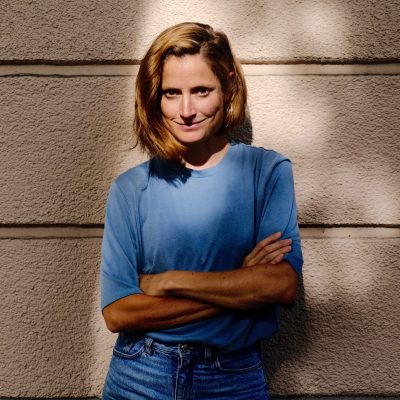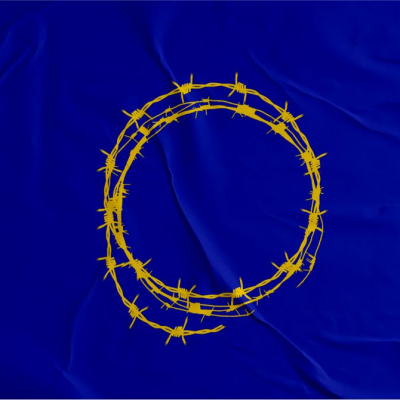Details
Article
At the end of Lefkothea’s Action Project, its participants decided to establish the first feminist collective in the region of Kastoria. Read below the report on the historical aftermath of the project and the birth of Femmess, a new empowering collective.
In December 2021, in the small rural border town of Argos Orestiko in Northern Greece, Humanity in Action Fellow, social worker and then post-graduate student Lefkothea Rizopoulou organized something that had never been done before in the region—an experiential workshop on gender-based violence.
The workshop was called “Not Just a Private Issue.” It was addressed only to women and femininities, and aimed to deconstruct the idea that gender-based violence is a personal matter or a private trouble. Through experiential exercises and non-formal education, the participants learned about the political dimension of gender-based violence (GBV), its definition, what boundaries mean and, when they are crossed, the concept of empathy and the legal actions they can take against abusers.
Partnerships included:
- The women’s counseling center of Kastoria, the only public social service and center for GBV survivors,
- Vassili Kiosse, psychologist, and
- Olympia Gaitanidi, a student feminist activist.
The workshop experience helped the participants realize many things and deconstruct information presented as facts. Additionally, a safe and brave space was cultivated by them to express themselves, share experiences, be empowered, be moved, and feel that they are not alone but have each other. Therefore, in the workshop’s call for collective action, they felt there was no other choice but not to lose that collective feeling and to unite in a feminist collective for themselves and all the women in their region. That was the birth of the first local feminist collective.
Initially, we operated informally doing various events and actions related to the history of feminism, gender rights, and feminist green spaces. We also applied and got a fund through the European Solidarity Corps for local youth groups. The project is called “Not just a private issue,” named after the workshop, and it is a Solidarity Project running for 12 months.
Τoday, it has the name Femmess; it acts self-organized and has taken and will take many more actions in the area of Argos Orestiko.
Through Femmess’ words and lived experiences
Femmess is a politicized non-profit collective that doesn’t belong to or follow political parties. Our goals are to raise awareness of gender issues, demystify and deconstruct gender-related myths, reflect on dominant ideologies and support people who have suffered gender oppression and violence. Femmess’ values are empowerment, acceptance, respect for human rights, and self-determination.
Being a feminist collective in a small rural border town, we know the state abandonment that the people of the region experience. The lack of adequate social structures acting on human and gender rights is leaving people exposed to multiple oppression and kinds of violence. We at Femmess, as women and femininities living in that region, know very well what this state isolation and abandonment of our town leads to. We see institutional sexism in every aspect of our lives.
Femmess does not intend to cover any systemic gap but to claim the existence and implementation of feminist policies that ensure a free and safe living for all of us regardless of gender and sexual identities. Femmess is dedicated to initiating crucial conversations that are often being avoided- discussions about the body, the meaning of consent and boundaries, the various family forms, state’s responsibilities and the dismantling of gender stereotypes. Femmess stands for all women and femininities offering a ground to mutually learn, support, empower and claim the life they want. Femmess remains committed to challenging, resisting, fighting and liberating from the shackles of the patriarchy.
Text written by Nikoleta Apostolidou and Lefkothea Rizopoulou on the behalf of “Femmess.”
*Clarifying the terminology
The word “femininity” (thilykotites), conversely to the English dominant gender discourse, is considered a more inclusive term within Greek feminist and queer circles. Greek gender discourse has been considering the complexity of the language and discourse and the lack of total agreement on a specific term within movements. Therefore, many feminist and queer collectives prefer addressing their population as both femininities* and women*. Nevertheless, statements and transfeminist calls from collectives agree on a common acceptance that we are all affected and are discriminated against by the patriarchal system.





